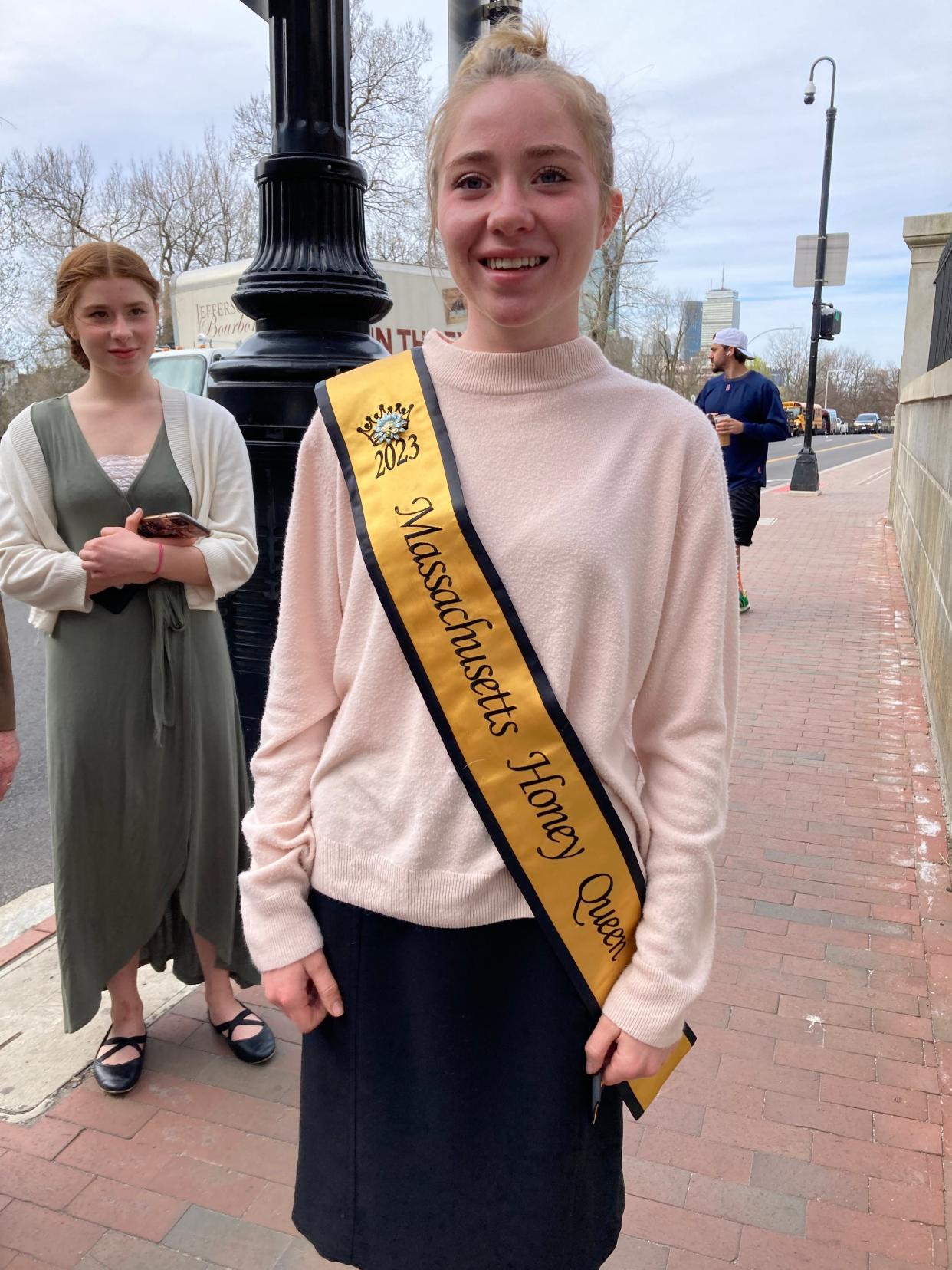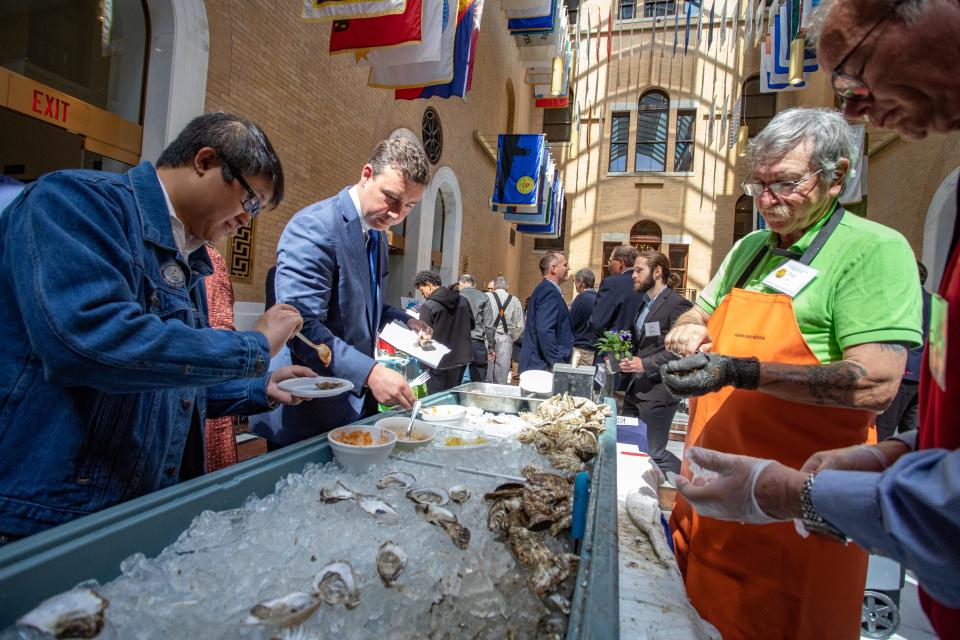Mass. farmers showcase their produce at first in-person Ag Day since 2019

- Oops!Something went wrong.Please try again later.
BOSTON - There was an appearance by the 2023 Massachusetts Honey Queen, tables laden with agri- and aquaculture produce, speeches and even awards for selected legislators.
For the first time since 2019, Massachusetts farmers were celebrated at the Statehouse on Massachusetts Agriculture Day.
“Agriculture Day serves as a wonderful opportunity to pay tribute to our hardworking Massachusetts farmers and producers who provide all of us with healthy, fresh, and delicious products and are a key economic driver for our local economies,” said Gov. Maura Healey. “Our administration looks forward to engaging with our agricultural industry and finding more ways to support their efforts in cultivating a robust and equitable agricultural economy.”
It was a day to celebrate and promote the 7,200 local farms spread out over almost half a million acres of the commonwealth, stretching from the Berkshires to the coastal region. The farms produce everything from meats, milk, cheeses, fruits and vegetables to herbs, oysters, fish and honey. And let’s not forget the Massachusetts cranberry and its pure maple products.
Most farms small, family-owned
Almost half those farms are concentrated in and around four contiguous counties. Worcester is home to 21% of the state’s farms, and Hampden, Hampshire and Franklin share another 28% of them.
“Farmers are vital to the commonwealth’s food system, and it is crucial that their voices are heard in the legislative process,” said Karen Schwalbe, executive director of the Massachusetts Farm Bureau Federation. “By collaborating with lawmakers and industry stakeholders, we can create policies that support and strengthen agriculture, ensuring a sustainable future for generations to come.”
Those policies include supporting and promoting the state’s Buy Local programs, partnerships between school districts and farmers, and the Health Initiatives Program, which reimburses participants, those eligible for SNAP or WIC benefits, for a certain percentage of their grocery budget spent at farmers markets.
Lawmakers have filed more than a half-dozen bills in support of local agriculture. One bill would fund HIP at $24 million for the coming fiscal year. And the governor included $25 million in her fiscal 2024 budget to fund the Food Insecurity Infrastructure Grant program, a pandemic-era initiative that supports the state’s small farmers.
Commonwealth farmers contribute close to $500 million to the state’s economy while facing some of the highest costs, with farmland assessed at an average $10,000 an acre, according to the USDA’s Farm Service Agency. The majority of Massachusetts’ farms, between 80% and 95%, are small, family holdings.

Three state legislators - Sens. Bruce Tarr, R-Gloucester, and Anne Gobi, D-Webster, and Rep. Paul Schmidt, D-Westport - were recognized for their support of the viability and sustainability of the state’s agricultural businesses, receiving ceremonial plaques honoring their efforts. Tarr and Schmidt are themselves farmers.
Tarr’s property in Gloucester serves as an animal refuge, and he has successfully legislated for the humane treatment of animals. One of his bills, dubbed The Beagle Bill, requires healthy laboratory animals be offered for adoption. Massachusetts has many life sciences and pharmaceutical laboratories that use beagles for testing.
Among most diverse crops in US
“Massachusetts is world-renowned for our variety and diversity in crops and products, which run the gamut from nursery-grown plants and horticultural products to dairy, aquaculture, maple, honey, livestock and a wide array of fruits and vegetables,” said Rebecca Tepper, the state’s secretary of Energy and Environmental Affairs.
“Our farmers have tended the land for generations, maintaining and nurturing precious open and green spaces,” Tepper said. “They have been leaders in implementing the latest in renewable and energy-efficient technologies to mitigate the impacts of climate change, becoming more economically viable and environmentally sustainable, contributing to a greener economy in the commonwealth.”
Agriculture Day also serves as an opportunity to empower students, children and their families through education regarding healthy eating, behavioral practices, agriculture, food, and environmental science, according to a release from the office of Energy and Environmental Affairs. Students from local FFA and 4-H youth organizations were on hand to assist with the smooth running of the day’s events.
This article originally appeared on Telegram & Gazette: Massachusetts farms add $500 million a year to state's economy

